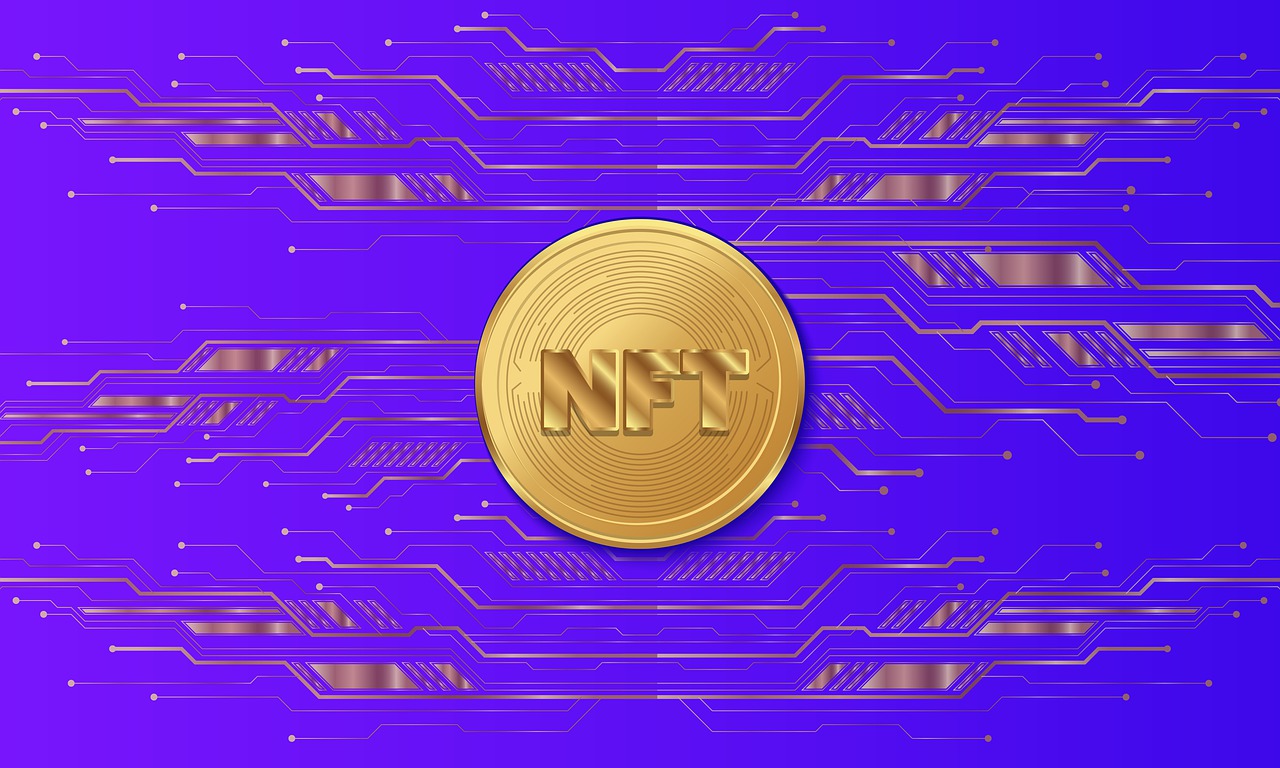On July 1, 2022, the Washington State Department of Revenue published an interim statement on how sales tax applies to non-fungible tokens, or NFTs. Washington is one of few states to tackle the taxability of NFTs, and it’s starting to stand out as a leader in the field.
It’s pretty much uncharted territory.
What is an NFT?
NFTs grew out of blockchain, a decentralized, “peer-to-peer network that sits on top of the internet.” Blockchain emerged in October 2008 during the Great Recession, when trust in traditional financial processes was wavering. Bitcoin, a virtual currency that represents “the first application of blockchain technology,” was introduced in 2009.
The first topic the Washington State Department of Revenue (DOR) tackles in its interim statement is providing what it calls “functional descriptions” for the terms non-fungible, token, and non-fungible token. These terms and the technologies they stand for are so new, they don’t yet have definitions codified by the state.
Per the DOR:
Non-fungible means not capable of being interchanged, so something that is non-fungible cannot be copied, subdivided, or substituted. By contrast, something “fungible” is a commodity, money, or other thing that is replaceable in equal part as payment for settling a debt or account.
A token is a digital unit supported by a blockchain.
A non-fungible token is a unique digital identifier that cannot be copied, subdivided, or substituted; it’s recorded in a blockchain and used to certify authenticity and ownership. An NFT is not a cryptocurrency, which is fungible; likewise, cryptocurrency is not an NFT.
An NFT may be bought and sold as a stand-alone item, for lack of a better term. Or, the sale of an NFT may entitle the purchaser to receive products or services such as:
- Digital products (artwork, music, video games or video works)
- Admissions to events (tickets to concerts, clubs, or sporting events)
- Prepared food or beverages in a restaurant or club
- Tangible personal property (clothing, collectibles)
For example, there’s a company that sells golf club and country club memberships via NFT to allow more fractional usage and heritability. A private dining club in New York sells membership via NFT. And in the world of fashion, NFTs are increasingly linked to physical items.
It’s worth highlighting that the interim statement functionally describes NFTs as digital code. Most states have yet to do that, leaving the taxability of NFTs in doubt. Senior Director of North America Tax Content at Avalara David Lingerfelt wants states to clearly define NFTs as Washington is now doing. “Failure to do so invites tax controversy that is costly and time-consuming,” he says.
Is the sale of an NFT subject to sales tax?
There’s no one answer to this question because taxability hinges on several factors: what is included in the transaction, the taxability of each component, and the identities of the buyer and seller.
The DOR has identified four basic types of NFT transactions and provided sales tax guidance:
- 1. The object of the purchase is a stand-alone digital product (the NFT itself), such as artwork, an autograph, or video clips. Sales tax generally applies to retail sales of digital products in Washington, so the sale of a stand-alone NFT would be taxable.
- a. Retailing business and occupation (B&O) tax also applies.
- 2.The object of the purchase is a stand-alone good or service, not the NFT itself. Retail sales of goods or services are generally subject to Washington sales tax, so this transaction would generally be taxable.
- a. Retailing business and occupation (B&O) tax also applies.
- 3.The object of the purchase is a stand-alone good or service that is not classified as a retail sale, not the NFT itself. Washington sales tax generally does not apply to sales of goods or services not defined as retail sales, so the transaction would not be taxable.
- a. B&O tax, use tax, or another excise tax may apply.
- 4. The sale of an NFT includes a royalty payment to the NFT creator, or to another party who retails the right to royalties for future sale or distribution of the NFT. Royalty payments are not subject to Washington sales tax.
- a. Royalties B&O tax applies to gross income from royalties.
How to tax bundled transactions that include an NFT
While some people are undoubtedly satisfied with the purchase of a stand-alone NFT, the DOR expects many NFTs sales will be mixed or bundled transactions. And determining the taxability of any sort of bundled transaction can be like unraveling a knot: You need to follow various threads to get to the end.
First, the seller must determine whether the sale is, in fact, a bundled transaction (i.e., it is a retail sale of two or more products, the products are otherwise distinct and identifiable, and the products are sold for one non-itemized price).
Second, the seller must determine whether sales tax applies to each good or service included in the sale. Bundled transactions are generally subject to both Washington sales tax and the retailing B&O tax, but there can be exceptions to that rule.
How do you source the sale of an NFT?
In order to determine the rate of sales tax to apply to the sale of an NFT, you need to know how the sale is sourced. Destination sourcing rules base sales tax on the location where the consumer takes possession of an item or benefits from a service. Origin sourcing rules base sales tax on the location where the sale is made (i.e., the location of the seller). Learn more about destination and origin sourcing.
Sourcing the sale of tangible personal property can be tricky, but it’s got nothing on sourcing the sale of a digital product like an NFT. As a member of Streamlined Sales Tax (SST), Washington state is obligated to follow the SST sourcing hierarchy. But SST hasn’t yet specified how to source NFTs, and until it does, SST member states like Washington are on their own. “It has happened in the past that the first state has to walk back their position if another SST member state develops a different policy, and SST, as arbiter, decides the other state’s position is more accurate. once SST takes a position,” says Scott Peterson, VP of Government Relations at Avalara and the first executive director of the SST Governing Board.
For now, Washington is applying SST’s sourcing rules for digital products to NFTs:
- Origin sourcing is used when the digital product is received by the purchaser at the seller’s business location.
- Destination sourcing is used when receipt does not occur at the seller’s business location.
- If not 1 or 2, the sale is sourced to the address for the purchaser from the seller’s business records.
- If not 1–3, the sale is sourced to the location indicated by an address for the purchaser “obtained during the consummation of the sale, including the address of a purchaser’s primary payment instrument.”
- If not 1–4, or if the seller doesn’t have sufficient information to apply one of those provisions, the location is determined by the address from which the digital code was first available for transmission by the seller, or from which the digital automated service (or other service that’s a retail sale) was provided. In other words, origin sourcing is used.
It’s necessary to spell out all the options because of the intangible nature of digital products. A seller doesn’t need a physical address to complete the sale and delivery, and therefore the address may not be obtained.
“Correctly sourcing a sale to a state requires at least the five-digit ZIP code, which is often all the credit card requires,” explains Peterson. “That then results in the credit card rules deciding how accurate retailers collect local sales taxes. That isn’t an ideal situation.”
Washington’s interim statement regarding the taxability of non-fungible tokens is a good read. The department clearly identifies the relevant issues and provides excellent examples to bring each scenario to life. Businesses are encouraged to contact the department for guidance in the event the facts and circumstances of their business activities aren’t addressed in the statement.
Pennsylvania and Puerto Rico are also working to clarify how sales tax applies to NFTs. In February 2022, the Treasury Department of Puerto Rico proposed adding NFTs to the list of taxable digital products. A few months later, the Pennsylvania Department of Revenue updated Rev-717 to specify that non-fungible tokens are taxable. The Multistate Tax Commission and the Streamlined Sales Tax Governing Board are also working to determine how to best classify NFTs for sales tax purposes.
To date, Washington’s guidance is the most robust. NFT sales described as taxable in the interim statement should be presumed taxable as of July 1, 2022.
Learn more about the mysterious nature of NFTs and the metaverse:
Taxing the metaverse: The basics
Selling goods in a virtual world can have real tax implications
Will there be a sales tax holiday in the metaverse?
Thanks for reading CPA Practice Advisor!
Subscribe Already registered? Log In
Need more information? Read the FAQs
Tags: Benefits, Digital Currency





